Engagement
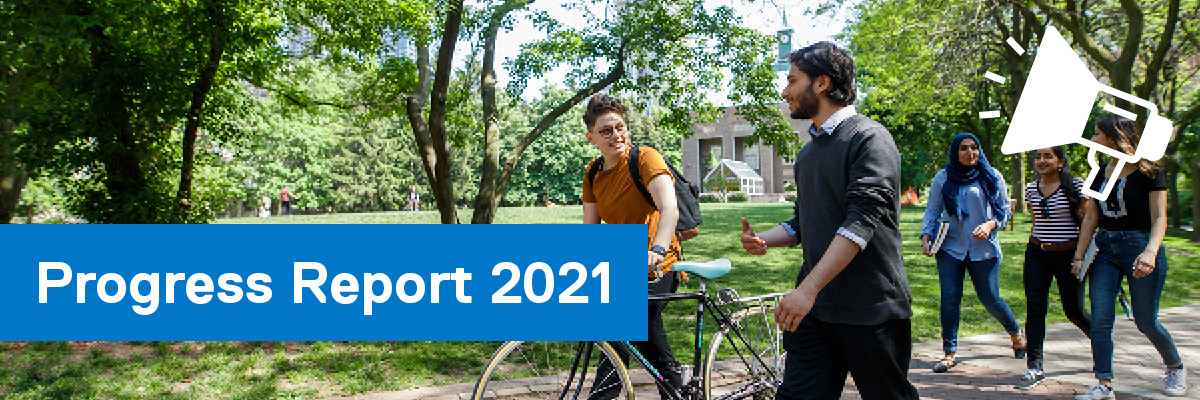
Engagement programs and initiatives for students, staff and faculty support the advancement of our campus sustainability goals, building sustainability knowledge and skills, and help to advance a culture of sustainability at TMU.
Programs
Students are key contributors to sustainability on campus. A number of the programs offered through the Sustainability Office centre on engaging students to build their sustainability knowledge and skills and provide opportunities to put it into action.
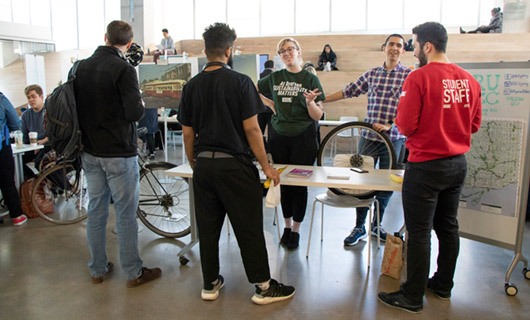
Sustainability Ambassadors
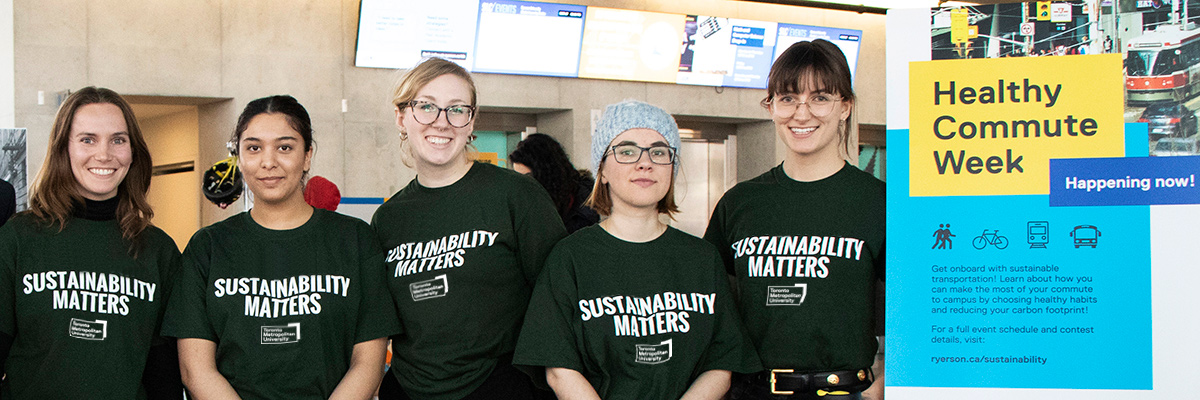
In 2020, the Sustainability Ambassador Program, a student volunteer program focused on peer-to-peer outreach and education, was revamped. The new program, managed by the Sustainability Office, provides increased opportunities for students to lead behaviour change initiatives on campus.
In Winter 2020, Sustainability Ambassadors ran a total of 10 pop-up events called “Sorting Out Our Waste”, engaging over 200 student peers on how to properly recycle and compost on campus. The Sustainability Office has trained and supported 22 sustainability student ambassadors since relaunching the peer-to-peer education program in January 2020.
In 2020
22 sustainability ambassadors
10 pop-up events
200+ students engaged
World Wildlife Fund Canada

In 2019,the Sustainability Office partnered with the World Wildlife Fund Canada (WWF Canada) to introduce the Living Planet @ Campus program (external link) , giving students (regardless of academic field) opportunities to take meaningful action and improve sustainability practices within their own lives and on campus.

Go Wild School Grant
In 2020, TMU student Sabrina Thomason was awarded a $500 grant from the WWF Go Wild School Grant (external link) plus an additional $500 grant from the Creative Technology Lab (CTL) at the Faculty of Communication and Design (FCAD) to purchase a grinder to mill failed 3D prints into bits for reuse in the hopper fed 3D printer on the lab’s Kuka Robot. The grinder is open to all FCAD students who wish to apply for research project time in the lab. Sabrina also worked closely with the Custodial and Groundskeeping team and the Sustainability Office to coordinate an opt-in program for FCAD groups to make use of recycling bins in the Daphne Cockwell Health Sciences Complex (DCC) garbage room for wood, metal, acrylic and acrylonitrile butadiene styrene (ABS) collecting.

Designing Change for a Living Planet competition 2019
In March 2019, TMU students competed in the Designing Change Hackathon held by WWF Canada’s Living Planet @ Campus program. Students from 15 campuses across Ontario were challenged to develop the next big innovation to address plastic pollution.
TMU’s team developed the concept for a recycling system for condos and schools called the Depot-Pod. Depot-Pod allows users to conveniently scan a QR code on the receptacles to instantly learn how to properly sort recyclables and compostable items. With an app, use of the Depot-Pod accumulates points for rewards.

Campaigns and events
Since 2018, the Sustainability Office has hosted over 50 engagement events and 6 annual campaigns, engaging nearly 4,000 campus community members. Our campaigns and events are centered on awareness building and empowering students, staff and faculty to create a more sustainable campus and world. Two of these successful campaigns are highlighted below:
Since 2018
50+ engagement events
6 annual campaigns
4,000 campus community members engaged
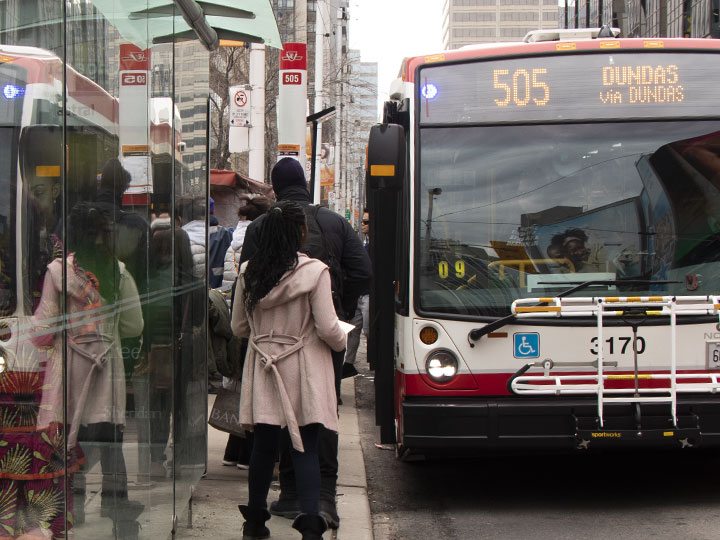
Healthy Commute and Awareness Fair
In March 2019, the Sustainability Office partnered with the TMU Students’ Union to host a Healthy Commute and Awareness Fair. The goal of the event was to promote sustainable commuting options to students. The event included a bike safety workshop, an art installation showcasing the evolution of public transit and a contest for the chance to win a $100 preloaded PRESTO card. Over 100 participants attended the event.
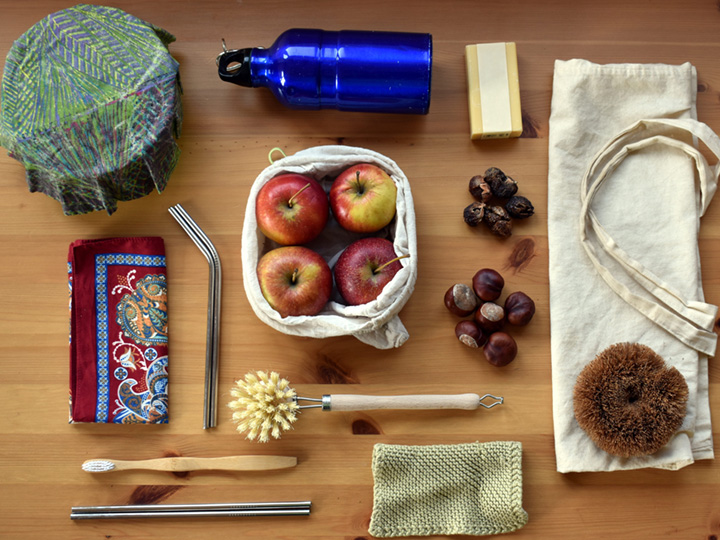
Plastic Free July
In 2019, the Sustainability Office hosted the Plastic Free July campaign within the Facilities Management and Development team to raise awareness about the amount of single-use plastics that we consume. The following year, it was expanded to a campus-wide campaign to extend our reach and increase the impact of the campaign across student, staff and faculty groups. The Chang School (team category winners) developed and implemented a Plastic-Free July Pledge and shared an Indigenous Algonquin Water Song with their colleagues.
- 90 Participants
- 12 teams:
- Athletics and Recreation (2 teams)
- Child and Youth Course Union
- Facilities Management and Development (2 teams)
- Nutrition and Food Student Union
- SciXchange
- Social Ventures Zone
- Team X (group of students from different programs)
- The Chang School TRSM Academic Success Centre
